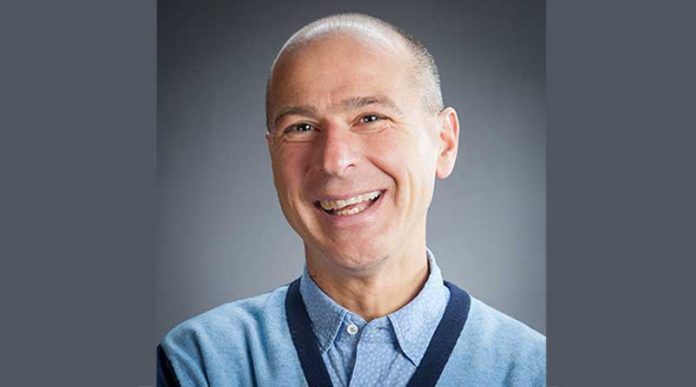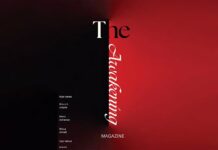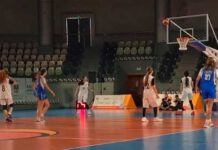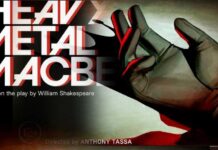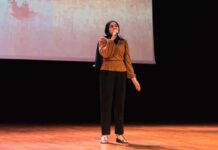AUS professor makes an International Studies course the highlight of some students’ days
By Jana Aljamal
American University Associate Professor, Giacomo Chiozza, made it from an Italian town to academia with a unique teaching technique.
Publications and academia aside, what seems to draw people to Chiozza is his teaching approach. As a former student, I can say that Chiozza is a professor who digs deep to find who his students truly are and provides them with the guidance and support to develop the necessary skills.
Indeed, three years ago I did not know what I wanted to pursue with a degree in International Relations until I took two international law courses with Chiozza. It did not take him long to notice my enthusiasm about the subject. After every court hearing, Chiozza told me “If I was ever in trouble, I know who to call!”
AUS student Sarah Al Saeid said there is nothing that excites her more than when the clock hits 11 a.m. and her class on International Organizations starts. Al Saeid said that her “instructor is full of excitement, you won’t even need coffee to wake you up.”
Al Saeid is one of many students in the International Studies Department who partakes in the ‘Chiozza Fandom.’ In fact, I got to see firsthand how senior students rushed to take a picture with Chiozza during the department’s gala dinner. At one point, AUS Professor Jeffrey King said “Wow…Giacomo is so famous.”
Chiozza grew up in a small town in western Italy during the 60s with two siblings. He left the town life after he obtained a bachelor’s degree in Political Science from the Università degli Studi di Milano and moved to the United States to complete his master’s degree.
Chiozza said that he never “envisioned” himself as a professor. His journey seems to be a compilation of coincidences that led up to a perfect career. In fact, he initially studied sociology as an undergraduate, but all his professors rejected his thesis. The only professor that agreed to be his advisor was a professor of political science, which altered the next 25 years of his life.
When Chiozza graduated, he applied for graduate school simply “to avoid responsibility,” he said. He flew to North Carolina to start his master’s degree in Duke University, North Carolina. It was Chiozza’s first visit to the state when he looked out of the window to see “nothing…nothing but grass… I felt like I was in nowhere and said, ‘I cannot function here’.” Yet, overall, he found his experience delightful “as long as [he] kept his mouth shut,” and did not expose the Italian accent, Chiozza said.
Speaking of coincidences, Chiozza worked on a project during the 2000s on a data set on political leaders. Luckily, it was also during this time that the discipline started to shift its focus from the “state’s” role to the “leader’s” role in international relations. To elaborate, prior to 2000, academia focused solely on the state’s role in the international system and there was little or no regard to the role of the political leader, Chiozza said. The data set later became a valuable source for scholars and academics who explored the roles of political leaders in the international system. Today, Chiozza is one of the most cited authors in the College of Arts and Sciences and holds an honorary title in AUS.
Chiozza said that the project started by simply saying “let’s do it!” He added, “I do not know what I am trying to do, but I try to do it to the best of my ability.” For all the overthinkers out there, start taking notes.
As the semester came to an end, he enlisted a group of five enthusiastic students in an international competition: The International Criminal Court Competition. Although it was not on the list of his responsibilities, Chiozza took the extra mile to be our advisor during the summer as we were preparing for the competition because he wanted to give us the opportunity to explore what we were passionate about in the field.
When I asked Chiozza about the bond he created with his students, Chiozza said “I relate to my students because it is the best thing ever. Talking to them is the thing I value the most and treasure the most.”



